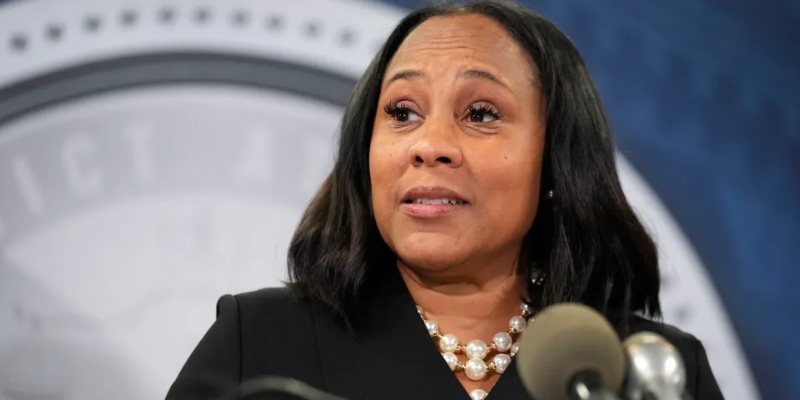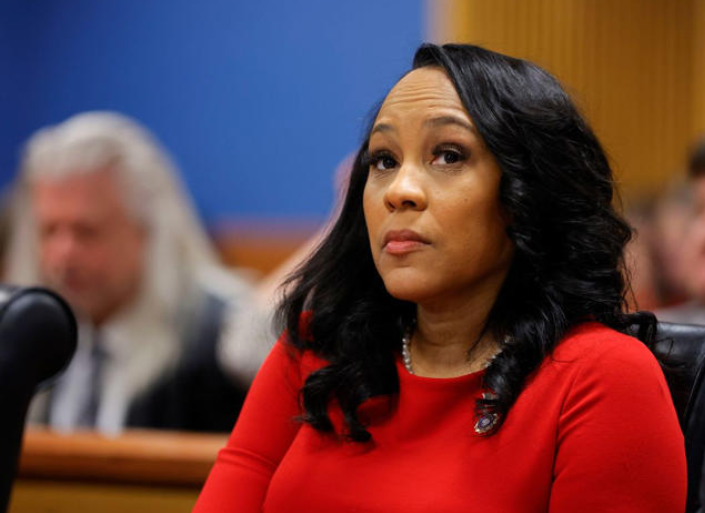The Georgia Supreme Court has declined to hear an appeal from Fulton County District Attorney Fani Willis, leaving her disqualified from prosecuting the high-profile election interference case against former President Donald Trump and several co-defendants.
In a closely divided 4–3 decision issued Tuesday, the state’s highest court denied Willis’ request to overturn the Georgia Court of Appeals’ December 2024 ruling, which found that her involvement in the case created a “significant appearance of impropriety.”
That ruling stemmed from Willis’ admitted romantic relationship with special prosecutor Nathan Wade, whom she had hired to assist with the case.
The appellate decision contrasted with a Fulton County trial court’s earlier conclusion that no “actual conflict of interest” existed once Wade resigned. However, the appeals court emphasized that testimony had raised a “financial cloud of impropriety and potential untruthfulness,” warranting Willis’ removal.

Narrow Ruling, Broad Implications
Justice Andrew Pinson, writing a concurring opinion joined by three other justices, stated that Willis’ appeal was too narrowly framed for Supreme Court review.
“Even if one believes that the Court of Appeals erred … granting review would be mere error correction, and this Court generally does not exercise certiorari jurisdiction merely to correct errors that do not have some broader impact on Georgia law,” Pinson wrote.
Three justices dissented, with Justice Carla Wong McMillian warning that the decision leaves unresolved whether a prosecutor can be disqualified solely based on the “appearance of impropriety.”
McMillian stressed that the Court of Appeals’ conflicting rulings on the issue create uncertainty across the Georgia bar, especially with a new state law allowing criminal defendants to recover legal fees if prosecutors are disqualified for misconduct.
Case Now in Transition
The Prosecuting Attorneys’ Council of Georgia (PAC) will now assign a new prosecutor to handle the case, which remains the last pending criminal indictment against Trump. PAC Executive Director Peter J. Skandalakis confirmed the search for a replacement has begun, but emphasized that no announcement will be made until the Fulton County Superior Court formally transfers the case.
Willis, while expressing disagreement with the outcome, said in a statement that she respects the court’s ruling:
“My office will make the case file and evidence available to the Prosecuting Attorneys Council. I hope that whoever is assigned will have the courage to do what the evidence and the law demand.”
Political and Legal Fallout
The decision was met with sharp political reactions. Georgia Attorney General Chris Carr called Willis’ removal “the correct one,” describing it as a “self-inflicted mistake.” Republican Party Chair Josh McKoon went further, urging state and federal investigations into Willis’ conduct.
Trump’s lead attorney Steve Sadow echoed those sentiments, calling Willis’ disqualification “proper” and claiming it underscored misconduct in the case. Conversely, Democratic Party of Georgia Chair Charlie Bailey stressed that accountability for the 2020 election interference allegations must continue, noting that four of Trump’s original 19 co-defendants have already pleaded guilty.
The ruling underscores an unresolved tension in Georgia law: whether the “appearance of impropriety” alone is sufficient to disqualify prosecutors — an issue that could shape future challenges in politically sensitive cases.

